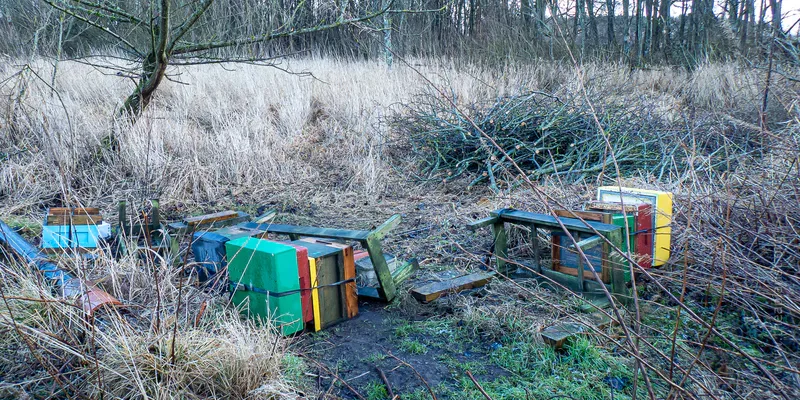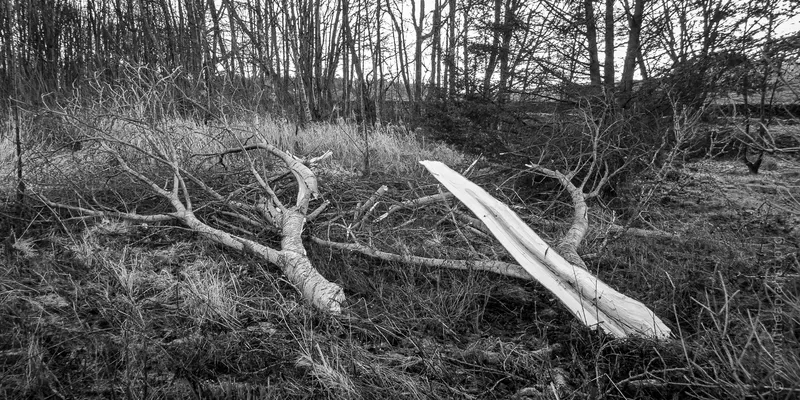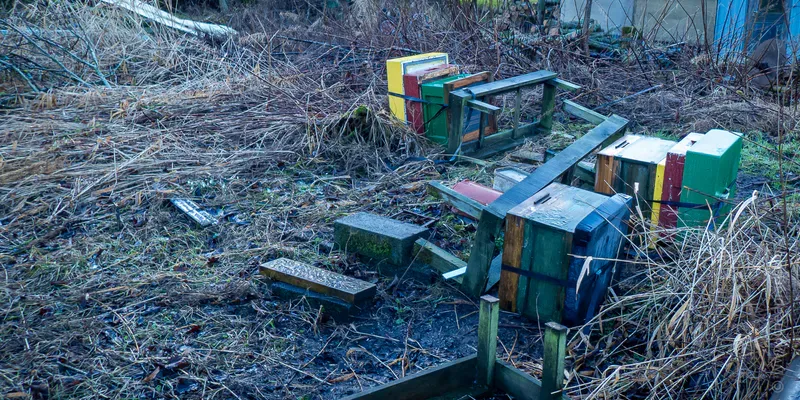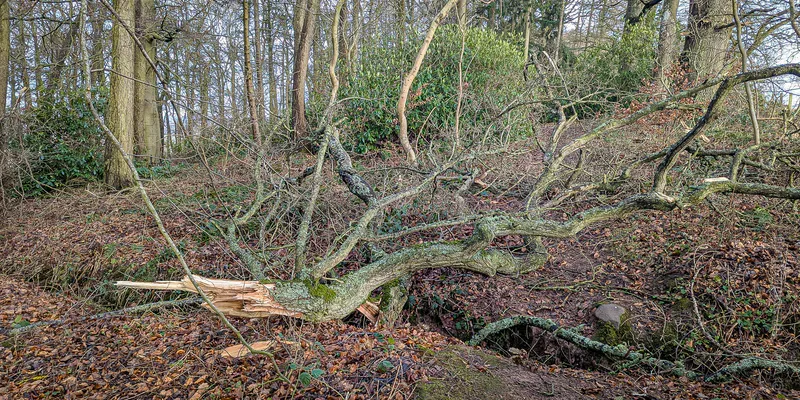Blowin' in the wind

At the same time that Midwinter moves appeared a fortnight ago, Storm Éowyn was wreaking havoc across south-central Scotland. Greenhouses were trashed, fences were levelled, trees were uprooted, and we had a large garden chair lifted clean over the house ... shortly followed by various quite important bits of the roof being ripped off and whirled away on the gale.
It was spectacular.

I remember Michael Fish's "It's not a hurricane" storm in October 1987. I was living then on the south coast of England, which bore the brunt of it. The wind speeds in '87 were lower, but the damage was far greater as many of the trees were still in leaf.
Storm Éowyn was, if anything, more dramatic as it arrived during daytime. Not only did it sound awful, but you could see things - bits of roof, deckchairs etc. - being carried bodily away on the wind.
And, inevitably, it toppled a few hives.

The following morning I was already en route to one apiary when I got the first WhatsApp. Two hives in the association apiary were blown off their stand, but thankfully still securely strapped together. It was already snowing as I crossed the Lammermuir Hills, and the temperature had been very low overnight. Fortunately, the weather cleared as I continued north, and association colleagues kindly repositioned everything and added another half paving slab on top for good measure. I didn't need to rush quite so much.
Hurricane
At another apiary I was greeted by a scene of devastation. Trees across the access road, all the hives and stands blown over, a once-towering poplar snapped in half, and no electricity to get the kettle going.

The hives and stands would be relatively easy to sort out, the poplar would take a bit more effort, but the power-outage was a disaster.
It was going to be a busy morning.